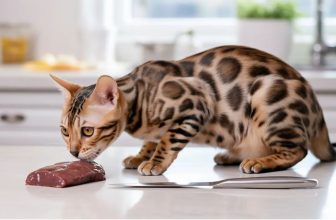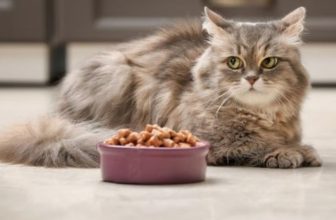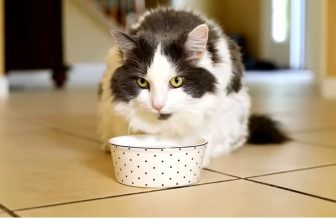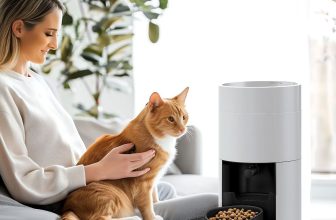What Human Food Can Cats Eat – The Best Guide

As cat owners, we often find ourselves in the tempting position of wanting to share our meals with our feline companions. After all, they’re part of the family,
Right While it’s true that some human foods can be a tasty treat for cats, it’s important to know which foods are safe and which ones can be harmful. Cats are obligate carnivores, meaning they need a diet primarily based on animal proteins. However, some human foods can be introduced as occasional treats, adding variety to their meals and what human food can cats eat.
In this post, we’ll take a closer look at the kinds of human foods that are safe for cats, the ones they should never consume, and some guidelines on how to safely share food with your furry friend.
Can Cats Eat Human Food?
Many cat owners wonder if it’s okay to feed their cats human food. The short answer is yes but with caution. While cats can eat certain human foods, it’s essential to remember that their nutritional needs are quite different from ours. Human food can offer some variety in their diet, but it shouldn’t replace their main food, which should be nutritionally complete cat food.
Cats are obligate carnivores, meaning their bodies are designed to consume animal-based protein. Their digestive system isn’t suited to process large amounts of grains, vegetables, or sugary foods. This is why some human foods can be harmful to them, and why moderation is key when sharing food with your pet.
Some human foods, like meat, fish, and certain fruits and vegetables, can be healthy for cats when prepared properly. However, some foods, like chocolate, onions, or garlic, can be toxic and should be avoided at all costs.
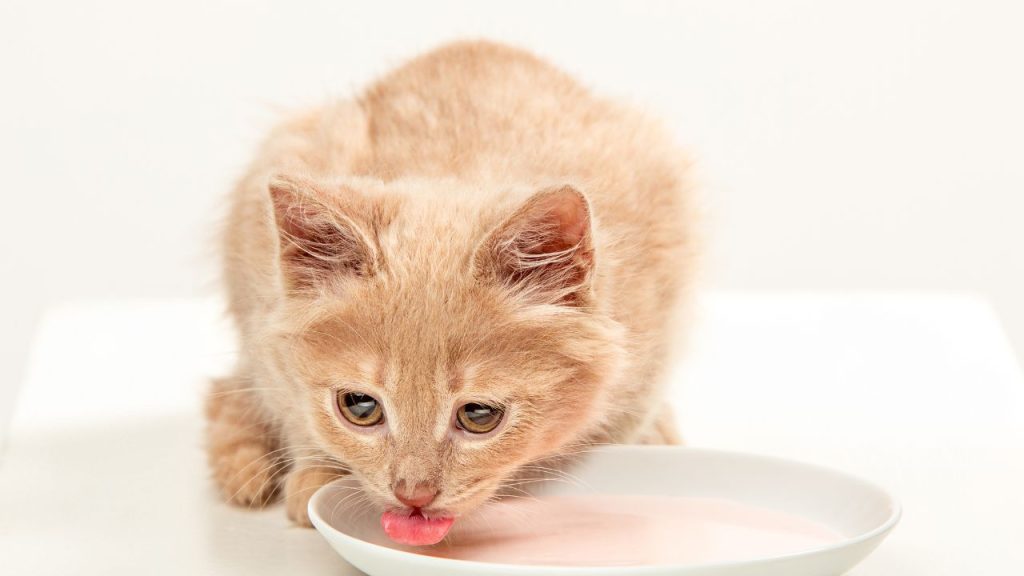
Safe Human Foods for Cats
If you’ve ever wondered what human foods are safe for your cat, you’re in luck! While there are plenty of things they can’t eat, there are also many foods they can safely enjoy in moderation. Below, we’ve broken down safe human foods into categories: meats, fruits, and vegetables.
Meats for Cats
Cats love meat, and for a good reason – it’s packed with the protein and nutrients they need. Here are some safe meats you can offer to your feline friend:
- Chicken and Turkey:
Lean, boneless, and skinless chicken or turkey is a great protein source for cats. These meats are easily digestible and are a healthy option when cooked properly. Avoid seasoning or adding spices, as many seasonings are harmful to cats.
Why it’s good: Chicken and turkey provide essential amino acids, which are crucial for maintaining a healthy coat, muscles, and overall bodily functions. - Beef:
Beef is another good meat option for cats. It’s rich in protein and other nutrients like iron and zinc, which are important for your cat’s health. Again, make sure to remove any bones and avoid cooking with seasoning or oils.
Why it’s good: Beef is an excellent source of protein, and it provides taurine, an amino acid essential for heart and eye health in cats. - Fish (Salmon, Tuna):
Fish like salmon and tuna can be a tasty and nutritious treat for cats. Fish is high in omega-3 fatty acids, which are great for a shiny coat and healthy skin. However, fish should be offered in moderation as too much can lead to nutrient imbalances.
Why it’s good: Fish is rich in protein and omega-3s, which help reduce inflammation and support cognitive function.
Fruits for Cats
While cats aren’t typically fruit eaters, some fruits are safe for them to consume. However, fruits should only be given in small amounts and should be offered as an occasional treat.
- Pumpkin:
Pumpkin is not only safe but beneficial for cats. It’s high in fiber and can help with digestive issues, like constipation or diarrhea. Make sure to use plain canned pumpkin (not the spiced pie mix) when feeding it to your cat.
Why it’s good: Pumpkin helps regulate your cat’s digestive system and can be useful for managing hairballs. - Blueberries:
Blueberries are packed with antioxidants and vitamins, making them a healthy treat for cats. They are small and easy for cats to eat, but should be given sparingly.
Why it’s good: Blueberries are full of antioxidants that promote a healthy immune system and protect against cellular damage. - Strawberries:
Strawberries are another safe fruit for cats. They are high in vitamin C and low in calories. However, some cats may not enjoy the texture of strawberries, so always watch your cat’s reaction to this fruit.
Why it’s good: Strawberries are rich in vitamin C and fiber, both of which support overall health. - Bananas:
Bananas are a good source of potassium and fiber, making them a healthy snack in small amounts. Just be cautious about feeding them in excess, as too much fruit can upset your cat’s stomach.
Why it’s good: Bananas can help support muscle function and provide energy due to their potassium content. - Vegetables for Cats
Cats are obligate carnivores, so they don’t require vegetables in their diet. However, certain vegetables can be a safe and healthy treat. Just be sure to cook the vegetables to make them easier to digest and remove any seeds or stems.
- Broccoli:
Broccoli is a good vegetable for cats to eat in small amounts. It’s high in fiber and vitamins, and it can help with digestion. Some cats may even enjoy the crunchy texture.
Why it’s good: Broccoli contains vitamin C and fiber, both of which are beneficial for a cat’s overall health. - Carrots:
Carrots are a great source of beta-carotene (which converts to vitamin A) and fiber. When offered raw or cooked, they can serve as a crunchy, healthy treat.
Why it’s good: Carrots support vision health and promote healthy digestion. - Sweet Potatoes:
Sweet potatoes are a safe and nutritious vegetable for cats. They are rich in fiber and vitamins and can be a good source of energy for your cat. Just be sure to cook them thoroughly before offering them.
Why it’s good: Sweet potatoes are a great source of antioxidants and help maintain healthy digestion.
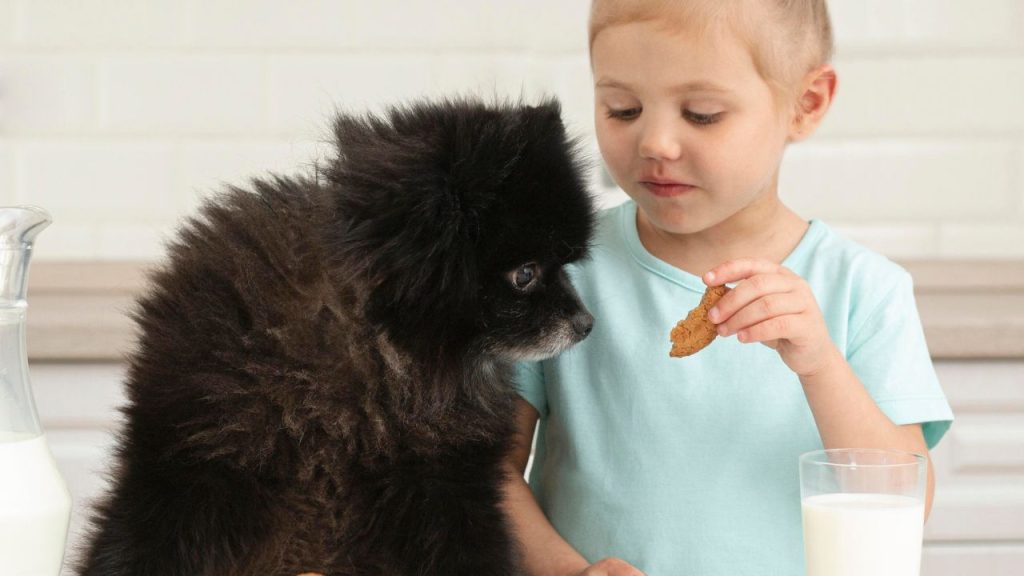
What Human Foods Can Cats NOT Eat?
What Human Food Can Cats Eat: While there are plenty of human foods that cats can enjoy, some foods are highly toxic to them and should be strictly avoided. Below is a list of human foods that can be harmful or even deadly to cats:
- Chocolate:
Chocolate contains theobromine, which is toxic to cats. Even small amounts of chocolate can cause vomiting, diarrhea, rapid breathing, and seizures. - Onions and Garlic:
Both onions and garlic contain compounds that can damage a cat’s red blood cells, leading to anemia. Even small amounts of these foods can be harmful over time. - Grapes and Raisins:
Grapes and raisins can cause kidney failure in cats. While the exact cause is unknown, it’s safest to avoid giving them to your cat altogether. - Alcohol:
Alcohol is extremely toxic to cats. Even a small amount can cause severe liver and brain damage, leading to symptoms like lethargy, vomiting, and even coma. - Caffeine:
Caffeine, found in coffee, tea, and certain sodas, can cause serious health issues in cats, including restlessness, rapid heart rate, and muscle tremors.
How to Safely Feed Cats Human Food
Feeding your cat human food can be a fun way to spoil them, but it’s important to do so safely. Here are some tips:
- Portion Control:
Treat human food as an occasional snack, not a regular part of your cat’s diet. Keep portions small to avoid upsetting their stomach or creating nutrient imbalances. - Avoid Seasonings:
Never season your cat’s food with salt, pepper, or other spices. Many seasonings, such as garlic or onions, can be toxic to cats. - Cook Food Properly:
Always cook meat and vegetables thoroughly before feeding them to your cat. Avoid giving raw or undercooked food, which can carry harmful bacteria. - Consult Your Vet:
If you’re unsure about feeding your cat a certain human food, consult your vet first. They can provide guidance on safe foods and proper portion sizes.
Are There Any Health Risks to Feeding Cats Human Food?
Feeding your cat human food in excess can lead to several health issues:
- Obesity:
Treats should never exceed 10% of your cat’s diet. Overfeeding treats can lead to obesity, which can increase the risk of other health problems like diabetes and joint issues. - Digestive Issues:
Cats have sensitive stomachs, and giving them too much human food can lead to vomiting, diarrhea, or constipation. - Nutrient Imbalances:
Human food doesn’t meet all of a cat’s nutritional needs. Feeding your cat too many human foods can cause deficiencies in essential vitamins and minerals.
Frequently Asked Questions: What Human Food Can Cats Eat
1. Can cats eat cooked chicken?
Answer: Yes, cats can eat cooked chicken. It’s a great source of lean protein. Just ensure it’s cooked thoroughly, without any seasoning, bones, or skin.
2. Is it safe for cats to eat cooked eggs?
Answer: Yes, cats can eat cooked eggs. They are rich in protein and amino acids, but they should be cooked well (no raw eggs) to avoid the risk of salmonella or other bacteria.
3. Can cats eat cheese?
Answer: Cats can eat small amounts of cheese. It’s high in fat and protein but also lactose, which many cats have trouble digesting. It’s best to offer cheese sparingly and observe for any digestive issues.
4. Can cats eat cooked pumpkins?
Answer: Yes, cooked pumpkin is safe for cats and can even aid in digestion. It’s a good source of fiber and can help with constipation, but should be served plain, without any spices or added sugars.
5. Is it okay for cats to eat plain rice?
Answer: Yes, cats can eat plain rice in small amounts. It’s not particularly nutritious for them, but it can help with an upset stomach or diarrhea as a bland food option.


